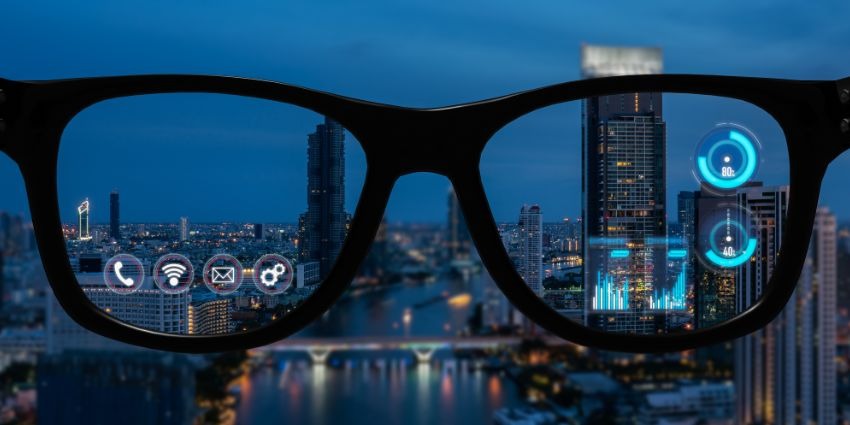AR Glasses: The Future of Tech or Just an Overhyped Gimmick?
Are AR glasses like XREAL, Viture, Rokid, and RayNeo the future of tech or just an overhyped luxury? Explore the current state of AR, its real-world uses, and whether now is the time to invest in these emerging devices.
GENERAL
10/4/20243 min read


Augmented reality (AR) glasses from XREAL, Viture, Rokid, and RayNeo have the potential to transform industries and entertainment, but are they truly the revolutionary tools we’ve been promised? As the technology continues to evolve, questions remain about whether these devices offer practical value for everyday users or if they’re just another high-tech luxury with limited real-world use. Here, we dive into the current state of AR and whether it’s time to invest—or wait.
Understanding the Potential of AR
AR’s potential lies in its ability to enhance reality by overlaying useful, interactive information onto the physical world. It already has applications in various sectors: from healthcare and construction to gaming and entertainment. Surgeons can see live patient data during an operation, architects can visualize buildings in 3D, and gamers can immerse themselves in virtual worlds without leaving their living room.
However, while AR has demonstrated immense potential, the technology is still in its infancy. Issues like limited app ecosystems, bulky hardware, and high costs have slowed widespread adoption.
Who Needs AR Glasses in Their Daily Lives?
Professionals in Specialized Fields:
Industries like healthcare, engineering, and manufacturing benefit from AR’s ability to display real-time data and enhance accuracy. Doctors, for example, can use AR glasses to view patient information or imaging during surgeries.Travelers and Tourists:
AR glasses can act as a personal travel guide. Imagine walking through a foreign city and having directions, translations, and local information appear seamlessly in your field of view.Gamers and Entertainment Enthusiasts:
Gamers are among the early adopters of AR. Devices like Viture’s AR glasses, which transform your gaming experience by creating an expansive virtual screen, are leading the charge in entertainment. You can play your favorite titles in a fully immersive AR space, wherever you are.Remote Workers and Digital Nomads:
With the rise of remote work, AR glasses have the potential to enhance productivity. XREAL Air, for instance, allows you to create a multi-monitor workspace on the go, whether you're at a café or in a hotel room.
Are AR Glasses Truly Practical Today?
While AR glasses hold great promise, their practical usefulness depends heavily on the user’s needs. For professionals in tech, healthcare, or specialized industries, AR can significantly improve workflows. Similarly, digital nomads, travelers, and gamers may find AR glasses a valuable addition to their toolkit.
However, the average consumer might find current AR devices more of a luxury than a necessity. They still come with limitations, such as the need for tethered connections to devices and limited app compatibility. AR is still in the stage where early adopters and professionals benefit the most, but it hasn't yet reached the point of being essential for the everyday user.
Are Companies Like XREAL, Viture, Rokid, and RayNeo Working Toward the AR Vision?
Each of these companies is pushing the boundaries of AR glasses, but the level of advancement varies. XREAL and Viture are focused on immersive visual experiences for both work and entertainment, while Rokid and RayNeo emphasize professional and practical applications. But despite these innovations, the technology isn’t quite at the point of widespread adoption. Tethered functionality, limited spatial computing, and niche applications still hold these devices back from reaching a broader audience.
That said, the groundwork for future AR adoption is being laid. As content grows, prices drop, and form factors become more compact, AR glasses could soon become indispensable across industries and everyday life.
Should You Invest in AR Glasses Right Now?
If you’re a tech enthusiast, early adopter, or someone who works in an industry where AR can streamline tasks (such as remote working or gaming), investing in AR glasses from companies like XREAL, Viture, Rokid, or RayNeo could be worthwhile. However, for most consumers, it may be better to wait. The technology is promising, but still developing in terms of real-world applications and user-friendliness. With more refined products likely to emerge over the next few years, a little patience could lead to a far better and more affordable experience.
The Road Ahead for AR Glasses
While AR glasses are making significant strides, they have not yet reached mainstream usability. Companies like XREAL, Viture, Rokid, and RayNeo are contributing to the evolution of this technology, but we’re still on the journey to realizing the full potential of AR. For now, AR glasses are best suited for professionals and early adopters, but the future holds tremendous possibilities as the technology continues to evolve.
